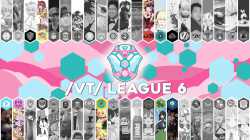on an unrelated note and moving to the idea of parent and child concepts, i simplified it enough in that one long explanation of it, but parent concepts are concepts that are required for another concept to possibly make sense, and child concepts are concepts that require another concept to possibly make sense. i figure, going into the future, an easy misconception would be to assume the language used to describe a concept is the concept itself, so to address that potential problem early, and to simultaneously give an example, i'll use the concept of concepts and languages as an example. you might think that the fact that i am using language to explain a concept means language is a requirement for the formation of a concept, however the explaining of a concept is not the concept itself, and if i had no conception of what it was i was trying to explain, i would in fact have no language adequate to explain it in the first place, and while i can conceptualize things in private, any attempt to put to language a non-concept would result in incoherent jargon, hardly qualified to be considered language at all, so we can see from this that language would be a child concept, that is, it requires the existence of the concept of concepts in order to possibly make sense, with the parent concept naturally being concepts.
what then is the parent concept of concepts? one could say that a universe is necessary for something to come into being that is capable of conceptualizing or being conceptualized, and therefore say that the universe is a requirement for concepts to exist, but while that is true, it is a few steps too far removed, as even with a universe, there must be something more specific to be able to conceptualize something. namely, you need consciousness to form concepts, and furthermore, you'd need a brain or something approaching it that is capable of consciousness to make any sense of that. after some loops of defining requirements for each concept, you'd eventually make it to the universe, depending on the path you followed, but depending on the concept, there might be more requirements than just one. for instance, we previously established that concepts are a requirement for language, however it would be incorrect to say that all that is required for language to exist is the ability to conceptualize something. if we define language as the expression of a concept or group of concepts through the use of a behavior or sequence of behaviors meant to establish mutual understanding (the definition could be more refined than this, i'm just giving it as an example off the top of my head) then behavior, the potential for mutual understanding, and even the existence of another conscious being capable of comprehending the concept could arguably be said to be a requirement for language to make any sense, since if there was no behavior that could convey a concept, or if there was no potential for mutual understanding of the concept, or if there was nobody to understand the concept, then there would be no point in having language at all.
all 5 parent concepts are necessary for language as a concept to possibly make any sense, and so we know the number of parent concepts the concept of language has is on the order of 5. maybe you can reduce that by finding a shared concept between two or more of the 5 concepts that effectively makes one or more of them a restating of another, or maybe you could find yet more concepts that are absolutely necessary for the concept of language to not be incoherent, maybe the definition of language will be refined to describe language more accurately, which might then imply a greater, or lesser number of parent concepts than what we currently have, but for now we'll just say it's on the order of 5. note that specific behaviors, such as a specific vocalization such as the word "the", while requiring language to make sense to us, don't require language to possibly make sense as a concept, depending on how you define it. furthermore, notice that the definition only affects how many parent or child concepts a concept has in so far as how many concepts are implied to exist by the language, no matter how verbose or succinct, the concepts that arise from the definition are what define the concept, not the words used to define them. the concept of "the" will very rarely be a parent concept of anything, even if we simplify it all the way down to being nothing more than a vibration spreading through the atmosphere at a certain frequency. stuff like prefixes, and suffixes require language, and grammar and punctuation, too, but specific symbols, sounds, or behaviors do not.

